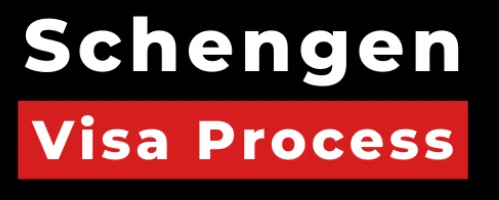The Schengen Area is a zone of 27 European countries that have abolished internal border control, allowing for free movement of people in accordance with common rules for external border control and law enforcement. It covers most of the EU, except for Ireland, as well as non-EU countries such as Norway, Iceland, Switzerland, and Liechtenstein. While it has greatly facilitated travel and business, travelers from outside the Schengen Area still need to go through border control and the agreement does not cover all aspects of migration policy. The Schengen Agreement was signed in 1985 and has been amended several times since its inception, with the most recent amendment taking place in 2017.
Schengen Area Countries
The Schengen Area is a zone of 27 European countries that have abolished internal border control, allowing for free movement of people in accordance with common rules for external border control and law enforcement. The area includes a diverse range of countries, each with their own unique characteristics and histories. Here are some key bullet points that provide more information on the countries and features of the Schengen Area.
- The Schengen Area consists of 27 member countries located in Europe.
- 23 members fully implement the Schengen acquis, while 4 EFTA countries implement it through specific agreements.
- Iceland, Norway, Switzerland, and Lichtenstein are associate members of the Schengen Area but are not members of the EU.
- Monaco, San Marino, and Vatican City have opened their borders but are not members of the visa-free zone.
- The Azores, Madeira, and the Canary Islands are special members of the EU and part of the Schengen Zone, despite being outside Europe.
- Ireland still maintains opt-outs, while Romania, Bulgaria, and Cyprus are seeking to join soon.
- The external borders of the Schengen Zone stretch for a distance of 50,000 km, with 80% being water and the remaining 20% being land.
- The area includes hundreds of airports and maritime ports, numerous land crossing points, an area of 4,368,693 km2, and a population of 423,264,262 citizens
| Country | Capital | Date of joining the Schengen Area |
|---|---|---|
| Austria | Vienna | 1995 |
| Belgium | Brussels | 1995 |
| Czech Republic | Prague | 2007 |
| Denmark | Copenhagen | 2001 |
| Estonia | Tallinn | 2007 |
| Finland | Helsinki | 2001 |
| France | Paris | 1995 |
| Germany | Berlin | 1995 |
| Greece | Athens | 2000 |
| Hungary | Budapest | 2007 |
| Iceland | Reykjavik | Not an EU member, but a member of the Schengen Area |
| Italy | Rome | 1995 |
| Latvia | Riga | 2007 |
| Liechtenstein | Vaduz | Not an EU member, but a member of the Schengen Area |
| Lithuania | Vilnius | 2007 |
| Luxembourg | Luxembourg City | 1995 |
| Malta | Valletta | 2007 |
| Netherlands | Amsterdam | 1995 |
| Norway | Oslo | Not an EU member, but a member of the Schengen Area |
| Poland | Warsaw | 2007 |
| Portugal | Lisbon | 1995 |
| Slovakia | Bratislava | 2007 |
| Slovenia | Ljubljana | 2007 |
| Spain | Madrid | 1995 |
| Sweden | Stockholm | 2001 |
| Switzerland | Bern | Not an EU member, but a member of the Schengen Area |
FAQ
What is an embassy?
An embassy is a diplomatic mission that represents the government of one country in another country. It is usually located in the capital city of the host country and serves as the official channel of communication between the two governments.
What is a consulate?
A consulate is a diplomatic mission that is usually located in a major city of the host country. It provides services to the citizens of the sending country who are residing in or visiting the host country. Consulates may also issue visas and provide assistance in case of emergencies.
What services do embassies and consulates provide?
Embassies and consulates provide a range of services, including issuing visas, assisting with passports and travel documents, providing assistance to citizens in emergencies or crisis situations, and promoting trade and cultural exchange between the two countries.
How can I find the contact information for an embassy or consulate?
The website of the Ministry of Foreign Affairs or Department of State of your country of origin will have a list of embassies and consulates located in other countries. You can also search for the embassy or consulate website online or contact your country’s embassy or consulate in the host country for assistance.
Do embassies and consulates have different levels of authority?
Yes, embassies usually have a higher level of authority than consulates. Embassies are responsible for maintaining diplomatic relations with the host country, negotiating treaties and agreements, and representing their country in international organizations. Consulates, on the other hand, focus on providing assistance to citizens and promoting trade and cultural exchange.
